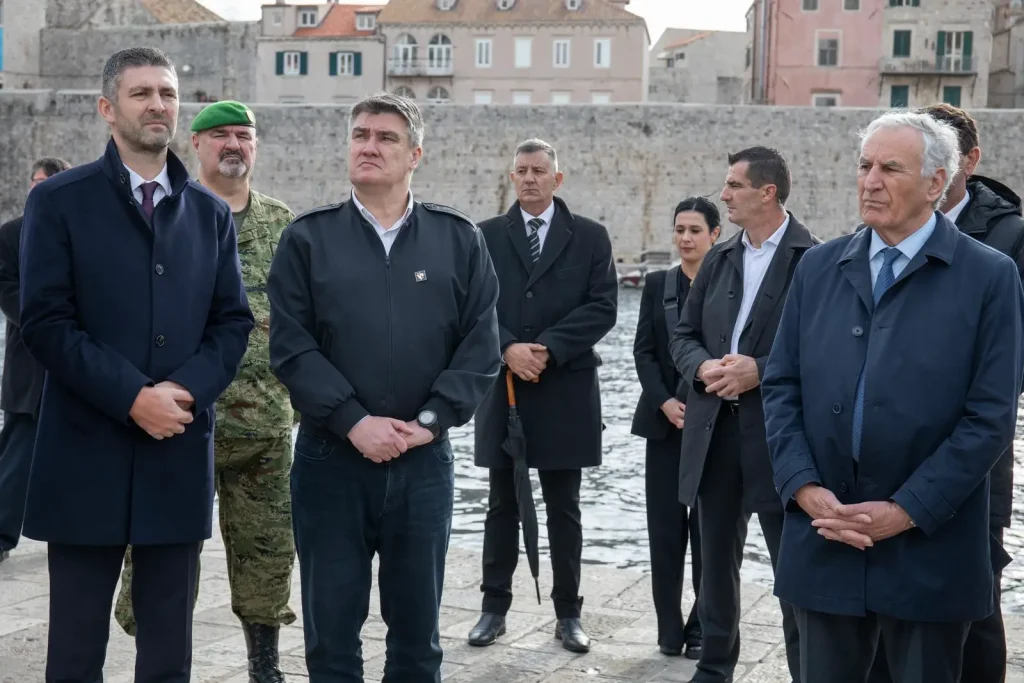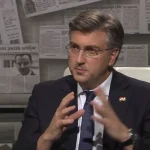After a lot of nail biting and waiting, Croatian Schengen accession has been officially approved
After much deliberation, a lot of back and forth and eyebrow-raising from Austria apparently not being quite understood, Croatia got the green light to become a Schengen member state on the first day of 2023. Austria’s initial issues with proposed Schengen expansion (which would have also included Romania and Bulgaria, but that won’t be the case for now) weren’t with Croatia as a country but with Schengen expansion as a whole. One Austrian minister was quoted as saying that Schengen is all well and good until there’s a political issue, when it suddenly ”ceases to exist”. I dare say that for as excellent as Schengen is, he’s far from alone in those opinions.
Despite all of that, and despite reports from the likes of the Financial Times (FT) that neighbouring Hungary and Viktor Orban could be the ones to throw a spanner in Croatia’s Schengen plans, both Austria and Hungary (and even Slovenia, which was expected to cause many more issues than it actually did) gave the green light alongside the other deciding nations.
Croatia is now set to become a fully-fledged member of the Schengen area and in less than one month, border controls will be abolished at land, as well sea border crossings, and then on March the 26th, 2023, the same will be done at the country’s airports.
Bulgaria and Romania apparently did not receive support because there was a lack of consensus on them joining.
“Croatia received the unanimous support of the Council for Internal Affairs and Justice – on January the 1st, 2023, we will become a member of Schengen! During this, a year of delivery, we achieved the government’s strategic goals, from which both people and the economy will benefit the most!” Plenkovic tweeted after the official announcement.
ATMs cause trouble as we approach Eurozone accession
Moving the Schengen celebrations and the promise of totally free movement aside for a moment, the same unfortunately can’t be said for the freedom of cash withdrawals as we approach the day on which we introduce the euro as our official currency. Thousands of ATMs were put out of function this past week as we prepare to enter the Eurozone, leaving many people scratching their heads about where to get cash. Some ATMs have already had the kuna drained from them and been filled up with euros, and around 40 percent of them across the nation will eventually become unavailable as we get closer to D-Day, or should I say E-Day.
Throughout this final month in which the kuna remains the country’s official currency, around 2700 ATMs will be put out of function. Only those which have the ability to allow both kuna and euro withdrawals will continue to work, with the rest gradually being adapted to the euro.
The mass shutdown of ATMs will begin in about ten days, with a small number being shut down by December the 15th, and from that date, the Croatian Association of Banks (HUB) will publish an interactive map of all ATMs in Croatia that remain active in real-time so that people know where they can withdraw banknotes.
It’s worth noting that this is also the time to get that old sock with rolled up notes in it out, lift up the mattress, and check your old coat pockets for 10 and 20 kuna notes. The traditional Croatian practice of keeping banknotes in odd items of clothing hidden somewhere in the house could come back to bite those who fail to bank their extra cash lying around so that it can be automatically converted to euros free of charge when we make the official switch over from the kuna to the euro on 2023’s maiden day.
PM Andrej Plenkovic says that those who are against Ukrainian soliders being trained here will have to carry that on their conscience for a long time to come
There has been a lot of talk about the idea and then the plan to train Ukrainian soldiers here in Croatia. President Zoran Milanovic (SDP) quite openly said that he was very much against the idea and that Croatia’s unwavering support for Ukraine and warm welcome to Ukrainian refugees said enough. He believed that training soldiers to fight against the Russian invaders here could end up bringing unwanted problems to Croatia’s doorstep, a mere 30 years after a bloody war of its own.
Others are totally for the idea, and this includes other EU countries who have agreed to also train Ukrainian soldiers in their fight against continued Russian onslaught.
Plenkovic claimed that he hasn’t yet heard any valid, logical or reasonable argument for possibly not making a decision on Croatia’s participation in the EUMAM military aid mission to Ukraine and said that the burden of political responsibility isn’t on those who are in favour, but on those who aren’t. He said he’d be voting for it and that he didn’t understand the political logic of those who have reservations about that decision and mission.
How parliament members will vote on Croatia’s participation in the EU military aid mission to Ukraine “will be a mark they’ll carry with them in the long term,” he added.
It’s important that Croatia supports Bosnia and Herzegovina on its EU candidate path, according to its senior international representative
During a recent meeting with the State Secretary for Europe at the Ministry of Foreign and European Affairs, Andreja Metelko Zgombic, the senior international representative in Bosnia and Herzegovina, Christian Schmidt, assessed that it is important for that country that Zagreb fully supports its acquisition of EU candidate status.
“Croatian support for Bosnia and Herzegovina’s candidate status for EU membership is very important,” wrote Schmidt on his Twitter profile. Croatian Prime Minister Andrej Plenkovic also expressed his expectation that the Council of Europe would be able to approve the candidate status of Bosnia and Herzegovina by the end of the year. Earlier on, the European Commission had indeed recommended that the Council make such a decision.
The German politician at the head of the international administration in Bosnia and Herzegovina assessed having EU candidate status as important for the entire country. “Obtaining EU candidate status would be a much-needed boost for the country and an important sign for people that the enlargement process is working for Bosnia and Herzegovina,” he said.
During that same day, State Secretary Metelko Zgombic headed the delegation that held working consultations with colleagues from the Ministry of Foreign Affairs of Bosnia and Herzegovina. Bosnia and Herzegovina’s Deputy Minister of Foreign Affairs, Josip Brkic, also stated on his Twitter that the interlocutors expressed satisfaction with the “extremely good bilateral relations between Croatia and Bosnia and Herzegovina”.
“Croatia remains the most important supporter and friend of Bosnia and Herzegovina on its path to both the EU and to NATO,” said Brkic.
President Zoran Milanovic visited Chile, the home of a huge number of Croats and their descendents
President Zoran Milanovic went to Chile for the first time recently, on his first trip to South America since taking office in February 2020. It is a vast continent of many opportunities where around 600,000 Croats and their descendents live today. Approximately 160 years ago, the very first wave of Croatian migrants, forced into making difficult decisions by poverty along the coast, set out for Chile. Two more emigrant waves to South American countries followed later, motivated by both economic and political reasons. I won’t go into the political ones here.
Historian Ljuba Boric, who works at the Centre for Migration Studies at the University of Santiago de Chile, says that the first Croats arrived there from all over the Dalmatian coast between 1860 and 1870 because of a disease of the grapevines and olive trees which sank their (typically) only means of making a living. They often took up mining careers in Chile.
Milanovic will spend a week in Chile and among other things he;ll meet with Chilean President Gabriel Boric who has been in power since March. Ljuba Boric, who is also related to Gabriel Boric, says that the president’s great-grandfather Ivo Boric and his brother Sime came from the island of Ugljan (close to Zadar) to Punta Arenas in about 1885.
Institutions from Croatia, a country with 3.8 million inhabitants according to the 2021 census, have been trying to determine the number of Croats in all of South America for some time now, claiming that approximately 600,000 ”members of the Croatian nation and their descendants live in various countries in South America.”
Milanovic says that the recent reports about bombs being in various large shopping centres have nothing to do with the situation in Ukraine
If you’ve been following the news over the last few months, every now and then there are very strange reports about shopping centres (usually in Zagreb) being evacuated because there have been reports of a bomb being planted there. Odd indeed. They have all been false alarms and for some extremely bizarre reason, it has become somewhat of a trend to claim bombs are being hidden in shopping centres. Odd indeed, yet again. One of the people who made such a claim was a security guard who simply didn’t want to come to work. He has since been dealt with by the authorities, and probably regrets not just calling in sick. Hopefully anyway.
This week, the bomb scare/shopping centre stories got a bit more of a spring in their step and more such scares were announced in multiple shopping centres in multiple areas. In sixteen counties, to be exact! Milanovic has been quick to squash the rumours that it has anything at all to do with the Russia-Ukraine war. On Tuesday he said that he thinks that these weird false reports about bombs have nothing to do with the horrific ongoing situation in Ukraine and said that those making these false claims should be located and arrested because creating panic among people like this for no reason is an act punishable by law.
“Find and aprehend these individuals – these are obviously people who don’t have these means (bombs) at their disposal, nor do they have anything to do with them, but they have the capacity to sow fear and panic among people, and that’s a punishable offence,” Milanovic told reporters in Dubrovnik. He added that he believes that it has absolutely nothing to do with the war between Russia and Ukraine, as some have been quick to try to claim. He also said that no normal person would show any sort of support to Russia.
Dubrovnik honoured its defenders and marked the 31st anniversary of the darkest day in its history – the siege
The 6th of December 1991 will remain etched deeply into the memories of all those who were there when the JNA attacked the city, and will forever be an unhealed wound for the Pearl of the Adriatic.
On the aforementioned date back in 1991, the City of Dubrovnik was viciously attacked by the JNA (Yugoslav Peoples Army), it was the culmination of a siege which sought to raze the globally adored UNESCO World Heritage Site to the ground. A similar and unfortunately successful action was seen much more recently in Palmyra at the hands of ISIS. The horrific bombardment of Dubrovnik resulted in international condemnation of the JNA and rightly became a public relations disaster for Serbia and Montenegro, contributing to and furthering their diplomatic and economic isolation and winning them powerful enemies across Europe and the rest of the world. It was a shot in the foot from which the still-estranged Serbia has hardly ever recovered in the eyes of the international community, and rightly so.
You can read much more about that day, the lives that were lost and the tremendous damage that was done by clicking here.
For more on Croatian politics, make sure to keep up with our dedicated section and follow our Week in Croatian Politics articles which are published every Friday.











